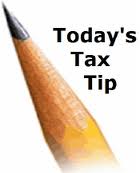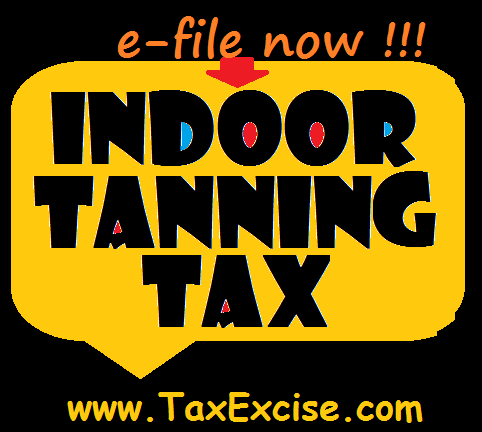 Excise Tax:
Excise Tax:
Excise taxes are taxes paid when purchases are made on a specific good, such as gasoline. Excise taxes are often included in the price of the product. There are also excise taxes on activities, such as on wagering or on highway usage by trucks. Excise Tax has several general excise tax programs. One of the major components of the excise program is motor fuel.
Reporting an Excise Tax with IRS is made simple and easy at www.TaxExcise.com . TaxExcise.com is the only website offering efile for all Excise Tax forms like, Form 2290, Form 8849 & Form 720.
Indoor Tanning Service Providers Must File a Federal Excise Tax Return
Beginning July 1, 2010, indoor tanning services will be subject to a 10 percent excise tax under the Affordable Care Act. Read more about Filing Indoor Tanning, Excise Tax return.
Leaking Underground Storage Tank (LUST) Tax Refunds
Taxpayers eligible for the LUST excise tax refund may use Form 8849, Claim for Refund of Excise Taxes, to file a claim.
Excise Summary Terminal Activity Reporting System (ExSTARS)
ExSTARS is a fuel reporting system developed with the cooperation of the IRS, Department of Transportation, states, and motor fuel industry, which details the movement of any product into or out of an IRS approved terminal. A facility control number (FCN) designates a storage location within the motor fuel, or renewable fuel production or the bulk transfer / terminal system. Information regarding the use of FCNs was made public by an announcement in the Federal Register on April 12, 2010. Read more at ExSTARS
Excise Tax Electronic Data Interchange (EDI) Guides (Pub. 3536)
Terminal Operators and Bulk Carriers refer to Publication 3536 for EDI filing requirements.
Under the Code and regulations, each person that engages in certain specified activities relating to excise tax must be registered by the IRS before engaging in that activity.
Excise Tax Online Exchange (ExTOLE)
The IRS administers a data repository for states to exchange motor fuel tax related information. 100 percent of the ExTOLE data originates from a particular state, and is available to other states under disclosure agreements between states. Read more at ExTOLE
Online Form 637 Registration Status Check
This Web application provides the ability for businesses to confirm whether individuals/companies have a valid IRS registration. To check your registration number, click here
Exemption From Excise Tax for Certain Wooden Arrows
On Friday, October 3, 2008, P.L. 110-343 (H.R. 1424), the Emergency Economic Stabilization Act of 2008 (Act), also known as the Tax Extenders and Alternative Minimum Tax Relief Act of 2008, was signed into law by the President. The Act includes a key provision in Title V, Section 503 that impacts the Archery federal excise tax.
This updates the field directive that discusses the Federal Excise Tax on the importation and manufacture of fishing and archery products.
Idling Reduction Devices Exempt from 12% Retail Excise Tax
The Environmental Protection Agency’s (EPA) list of devices that reduce highway tractor idling is now available. These devices may be exempt from the 12 percent retail excise tax provided they meet the criteria set forth in section 4053(9) of the Internal Revenue Code.
References/Related Topics
• Excise Tax Forms and Publications
• Federal Excise Tax – Rural Airports (PDF)
• IRS Issues Guidance on Truck Sale Excise Tax
Refer to IRS.gov website for more information.


 Starting July 1, 2010, many businesses offering tanning services must collect a 10 percent excise tax on the tanning services they provide. This excise tax requirement is part of the Affordable Care Act that was enacted in March 2010. Indoor Tanning tax has to be reported for the 1st Quarter of 2011 is due by May 2nd, 2011.
Starting July 1, 2010, many businesses offering tanning services must collect a 10 percent excise tax on the tanning services they provide. This excise tax requirement is part of the Affordable Care Act that was enacted in March 2010. Indoor Tanning tax has to be reported for the 1st Quarter of 2011 is due by May 2nd, 2011.